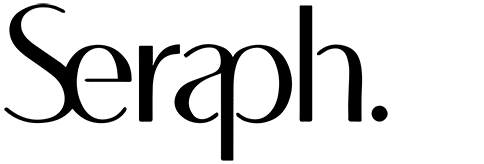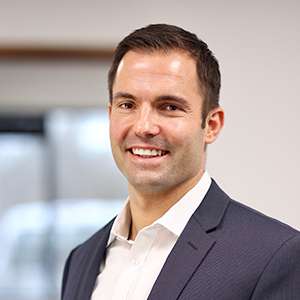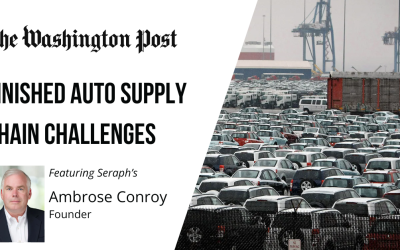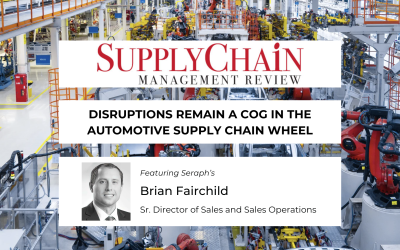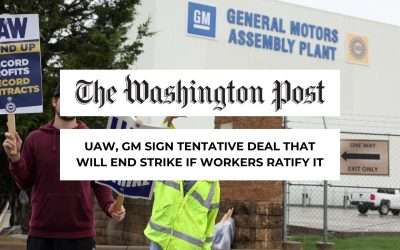As a part of this series, I had the pleasure of interviewing Thomas Kowal.
Thomas is the president of Seraph, a global enterprise consulting firm that partners with business leaders to handle their most complex problems in areas such as supply chain, operations, and manufacturing challenges while delivering long-term operational and leadership improvements. Companies across a range of vertical markets trust and regularly deploy Seraph’s consultants for their most difficult problems across manufacturing plants, operational facilities, and supply chains.
Thomas has two decades of extensive management, business development, and operations experience in the automotive and manufacturing industries. He holds a Bachelor of Aviation Science and Administration from Western Michigan University and a Master of Science from Northwestern University. In addition, Thomas completed the transition to General Management program at the INSEAD Institute in France and Singapore.
I started in the automotive and manufacturing industry 20 years ago. I’m originally from Sweden and got my education in England and the U.S. and spent the summers doing internships for Brose in Germany. Prior to joining Seraph in 2019, I worked as a plant manager at Brose, where I launched multiple plants before moving on to become North America sales director for automotive lighting and then TI Automotive, successfully introducing new customers and product technologies.
I have spent my career launching and running plants as well as working in business development and introducing vehicle programs.
Can you share the most interesting story that happened to you since you began your career?
I’m not sure if it’s a specific story, but rather, a specific time in my career. I was privileged to have the opportunity (although it was not easy) to launch an automotive plant near Detroit, in 2008/2009, the midst of the financial crisis. I was given the opportunity to run a rapidly growing facility and be a pivotal part of the launch of top tier car models.
People talk about finding “the why” in life and work. I have never felt a stronger calling than how I felt at this time. U.S. manufacturing was being outsourced to China and Mexico and unemployment rates were high. People were really struggling. It was hard to witness. However, it gave me a true purpose — develop one of the most efficient plants, with the best quality, and highest employee morale to ensure we brought more business into the plant, the state of Michigan, and the U.S.
When the plant was small, I was able to be engaged with all the people and run the business with less complexity. As the business grew, I was responsible for bringing in additional leadership and holding them to structured KPIs and processes. It was early in my career, so I had to learn to manage people who were more experienced than myself. I did this by focusing on understanding what they were looking for from me, and what I could help them achieve in their lives. For some, it was additional career opportunities; for others, it was better work-life balance; and for another group, it was just to be heard and respected for their experience. I held frequent, proactive consultations with our head of human resources, to ensure my management style aligned with and enabled a productive, supportive work culture.
Can you please give us your favorite “Life Lesson Quote”? Can you share how that was relevant to you in your life?
I do not have a favorite quote, but I like this one: “The key is to keep company with people who uplift you, whose presence calls forth your best.” — Epictetus
Another favorite is an excerpt from President Theodore Roosevelt’s “Citizenship in a Republic” speech; a passage referred to as “The Man in the Arena:”
“It is not the critic who counts; not the man who points out how the strong man stumbles, or where the doer of deeds could have done them better. The credit belongs to the man who is actually in the arena, whose face is marred by dust and sweat and blood; who strives valiantly; who errs, who comes short again and again, because there is no effort without error and shortcoming; but who does actually strive to do the deeds; who knows great enthusiasms, the great devotions; who spends himself in a worthy cause; who at the best knows in the end the triumph of high achievement, and who at the worst, if he fails, at least fails while daring greatly, so that his place shall never be with those cold and timid souls who neither know victory nor defeat.”
Both of these quotes motivate me to be the best for my family and friends, my health, and as a member of the Seraph leadership team.
For the full article, please view An Interview with David Leichner: “Thomas Kowal of Seraph on the Exciting Developments in U.S. High Tech Manufacturing from Authority Magazine.
Please let us know if you have any industry related questions or would like to contact us to learn more about Seraph.
